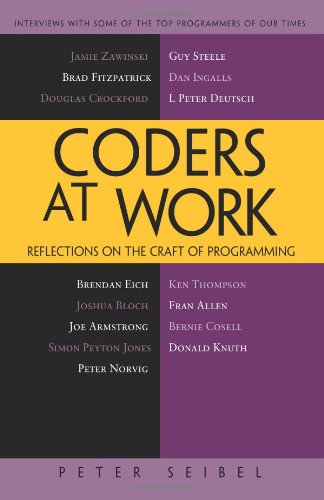Programming as the Fifth Discipline
Seibel: You mention four disciplines: music, graphics, mathematics, and text those are about as old as humanity. Clearly there are powerful ideas there that are independent of computers—the computer just provides a way to explore them that might be hard without the computer. Is there also a set of interesting, powerful ideas inherent in the computer? Is programming or computer science another deep discipline—a fifth area we can only do we have computers?
Ingalls: Yes, I think that's what I am getting at The curriculum I've always envisioned is one in which you start with one of these and maybe from the motivation of going deep In one of those areas, you move over to one of the other ones that's less familiar and do a similar thing there. And a lesson to be learned is that the way in which you get to those simpler, deeper structures that generate that whole field is similar in every case.
There's an algebra of graphics. It's primitive objects, superposition translation, rotation. Dr music. It's notes and temporal sequences and chords—same thing. And I think this goes "back to seeing how the wind works and how the planets move. It's an invitation to go down and find out how things work and learn in the things that make up the algebra—the processes and the primitive things. So yes, that fifth area, as you call it is just what's common about all of these things.
Notes:
Dan Ingalls sees computer programming taught along with math, music, graphics and text, with computers bringing the other four together within it.
Folksonomies: education computer science pedagogy
Taxonomies:
/technology and computing/hardware/computer (0.555336)
/technology and computing/software/graphics software (0.545442)
/health and fitness/disease/epilepsy (0.408347)
Keywords:
Discipline Dan Ingalls (0.959499 (neutral:0.000000)), powerful ideas (0.899931 (positive:0.364659)), superposition translation (0.651649 (negative:-0.415631)), deeper structures (0.629138 (positive:0.433735)), primitive objects (0.620152 (negative:-0.683209)), temporal sequences (0.616405 (neutral:0.000000)), similar thing (0.615278 (neutral:0.000000)), chords—same thing (0.609997 (neutral:0.000000)), deep discipline—a (0.608660 (negative:-0.353639)), primitive things (0.590964 (negative:-0.647774)), Dr music (0.582120 (neutral:0.000000)), graphics (0.470220 (positive:0.243998)), text (0.378927 (positive:0.228403)), computers (0.370627 (negative:-0.353639)), way (0.362884 (positive:0.372984)), area (0.358753 (negative:-0.353639)), Seibel (0.339924 (neutral:0.000000)), humanity (0.296894 (positive:0.212808)), rotation (0.290924 (neutral:0.000000)), disciplines (0.290299 (neutral:0.000000)), math (0.288563 (neutral:0.000000)), motivation (0.288266 (positive:0.379267)), mathematics (0.287041 (neutral:0.000000)), invitation (0.283749 (negative:-0.647774)), set (0.282853 (positive:0.688285)), planets (0.282312 (positive:0.208377)), ones (0.280895 (neutral:0.000000)), algebra (0.280452 (neutral:0.000000)), science (0.279251 (negative:-0.353639)), curriculum (0.277876 (positive:0.379267))
Entities:
Dan Ingalls:Person (0.872637 (neutral:0.000000)), computer science:FieldTerminology (0.760835 (negative:-0.353639)), Seibel:Person (0.513113 (neutral:0.000000))
Concepts:
Computer (0.982611): dbpedia | freebase | opencyc
Software engineering (0.909326): dbpedia | freebase | opencyc
Algorithm (0.825611): dbpedia | freebase | opencyc
Mathematics (0.821961): dbpedia | freebase | opencyc
Computer graphics (0.744342): dbpedia | freebase
Computer programming (0.702095): dbpedia | freebase
Computer program (0.692910): dbpedia | freebase
Programmer (0.682775): dbpedia | freebase | opencyc






